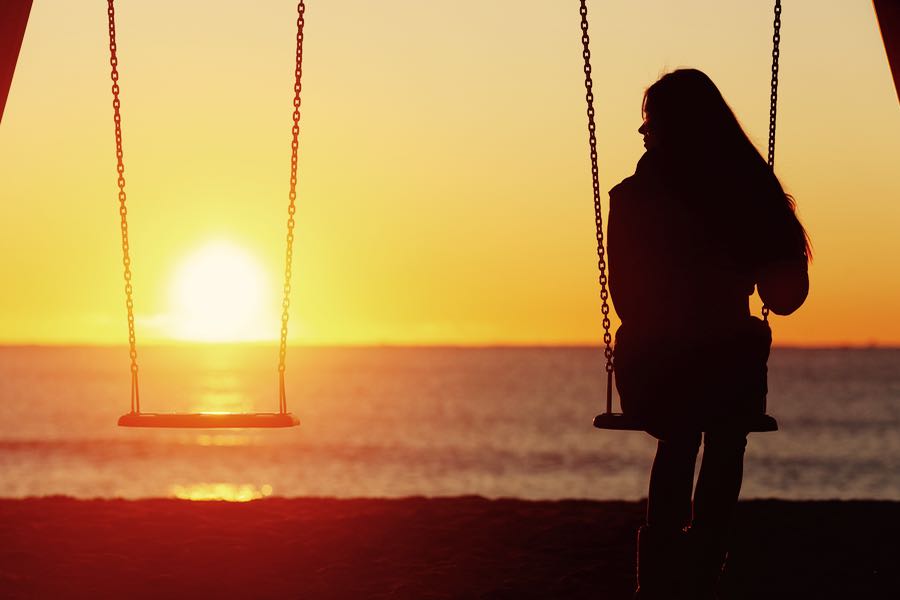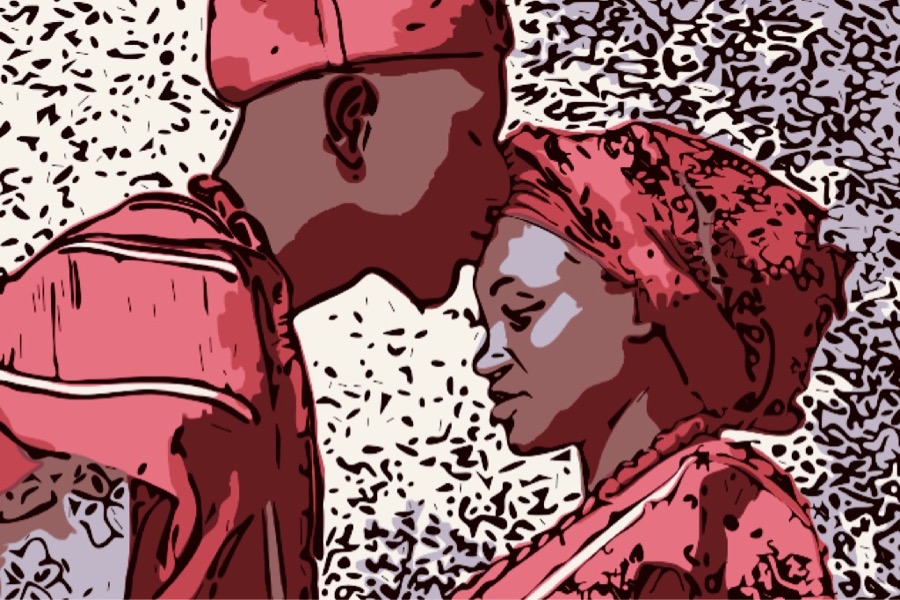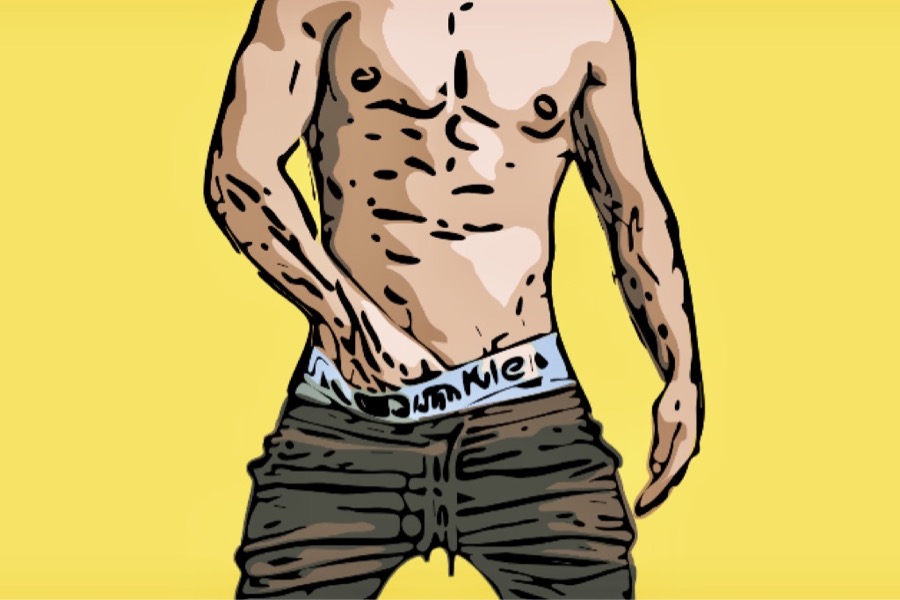I was born in an all-female household, in a house on the hills of rural Morocco. A modest pink republic, led by my grandma. I was always around women: my mother, my seven aunts, my grandma sister, my 11 cousins, and all those other women seen in soap operas. All the men (including my father) were far away, around Europe looking for fortune.
I was 4 years old when I arrived in Italy for the first time. I was 12 when I fully reached the awareness of my homosexuality, which I’ve immediately embraced with absolute serenity. What was hard to accept was my Arab identity and the entire world around it; I felt it was violent and unrelated to me. At that age, it’s normal to fight against oneself.
“Am I sick? Why I am different? Why I am attracted to men? Should I change? Is this what God wants for me?”. None of these questions passed thru me. Instead, I distanced myself from my Moroccan culture and its people, which also included the dismissal of my language. The religious aspect never interested me, as I’ve formed an embryonic agnosticism since childhood.
My parents were completely illiterate but my French teacher was convinced they knew the language. I’ve lied about it for years because I was ashamed of the truth. I didn’t want to accept my parents’ illiteracy.
Although, I could see my mother’s effort and willingness to understand the world around her, I could see how her eyes studied the surrounding objects, I could see how she shadowed me while I was doing homework yet could only bring herself to ask if I needed help coloring. My mother with her witty cheerful eyes; a woman who could never stop talking or moving. It was like living in close quarters with another child.
High school was a succession of discoveries, friendships, the birth of powerful emotions and the desire of self- affirmation by way of school elections. I was using doubt as a form of self-growth; doubt helped me to understand my natural place of existence. On the other hand, I was pushing my parents even further away from my new world. I didn’t want them to know who I really was.
Graduation was a difficult time because I had to explain to my parents what college was and why it was important. There was a shortfall of vocabulary between my spotty Arab and their handful of Italian spoke between their teeth. What a clash. What a struggle. A never-ending definitions quarrel that still stands today.
When I was thinking of coming out to my mother, I was looking for the shortest and most direct wording. I thought saying: “Mom, I like guys” was too long, and required a long explanation. The only word I knew, directly related to my homosexuality was: “zamel” which means fag, queer, fairy. But I did not want to talk about me using such terms. Then what? Where all the words were gone?
I’ve found the words thanks to Abdellah Taïa’s novels. There is an all new neutral terminology to indicate homosexuality, coined at the beginning of 2000’s: “mithli” (مثلي) for homosexual and “mithliya” (مثلية) for homosexuality.
It’s almost a joke: now that I finally had the right words, I wasn’t sure my parents could understand them (given the recent origination). Those words were laughing at me: so wanted and so useless. Those words never filled a room but remained forever written in my diary: I was afraid to forget them.
I feel I killed my mother. Yes.
I’ve killed her because, just like a dictator, I’ve left her in a state of intellectual minority, creating an anticultural barrier around her. At first, this was useful to prevent my mother for being part of my world but now it feels like condemnation. Ostracism. A dead weight on my conscience. Rather than giving her the appropriate tools to learn who I was and who I am, I have presented her with one way sentences.
Dear mother, you are bearing the same name as the prophet’s wife: Khadija. Your name appears to anticipate your doom, a mark of minority. Khadija means: “daughter born premature”. Words seem to be unfavorable; they always have the right hand and we can’t win. You, mother, have never had the strength to awake, just like a prematurely born daughter.
We are starving for words. I’ve conducted a dialectical search without having an audience. I want to stop this search for words in order to give a real form to all these letters and sounds. I am doing it here, right now. Even if these words won’t reach my mother, I know they will reach you and all this exploration will finally make sense.
I must make this transition. I must and will participate to the cultural and interfaith dialogue in regards to the LGBTQIA (lesbian, gay, bisexual, transgender, queer, intersexual and asexual) second generation, born and raised in Italy. We can’t undergo submission passively. I must participate with words and thoughts. France, England and Spain already have an open debate thanks to whom had the courage to shout out those words. If the Arab LGBTQIA community in Morocco, Alger, Lebanon, Tunisia and so on, does not fear to emerge and dare to challenge the local authority, why shouldn’t we be able to do the same here, in Italy?
With time, I’ve noticed my parents’ generation is imprinted with conservative logic. When you feel like a minority, when you are far away from home, when you must live your life outside of what you know (like my parents) due to lack of proper tools, there’s a tendency to hold on to any possible cultural identity, turning us into conservative beings. This obstructionism is amplified when integration is not taking place.
On one hand, some Arabic countries are opening their views and discussing civil rights, laicism and atheism, on the other, it is evident how Italy is become even more conservative and exacerbating immobilism. A state within a state, with its own rules and morality guidelines. We shan’t do the same. We are part of the liquid modernity, a multifaceted generation that should not fear to speak to Muslim communities about laicism and atheism, we should not fear to speak to any community: from Chinese to Senegalese.
Many of us come from countries where homosexuality is a crime. A topic, along with civil rights, that is not easily covered by media. The internet will be the natural place of our revolution, of our rebirth. The ultimate offense for whom pretends we are invisible.
There’s a plethora of us, yet many still fear to sign with their own name: I will start. I’m confident many more stories will land at Il Grande Colibrì, many more stories of courage.
Write to: info@ilgrandecolibri.com. Write! Unveil! Love yourself!
Anas Chariai
©2017 Il Grande Colibrì
translation by Barbara Burgio




